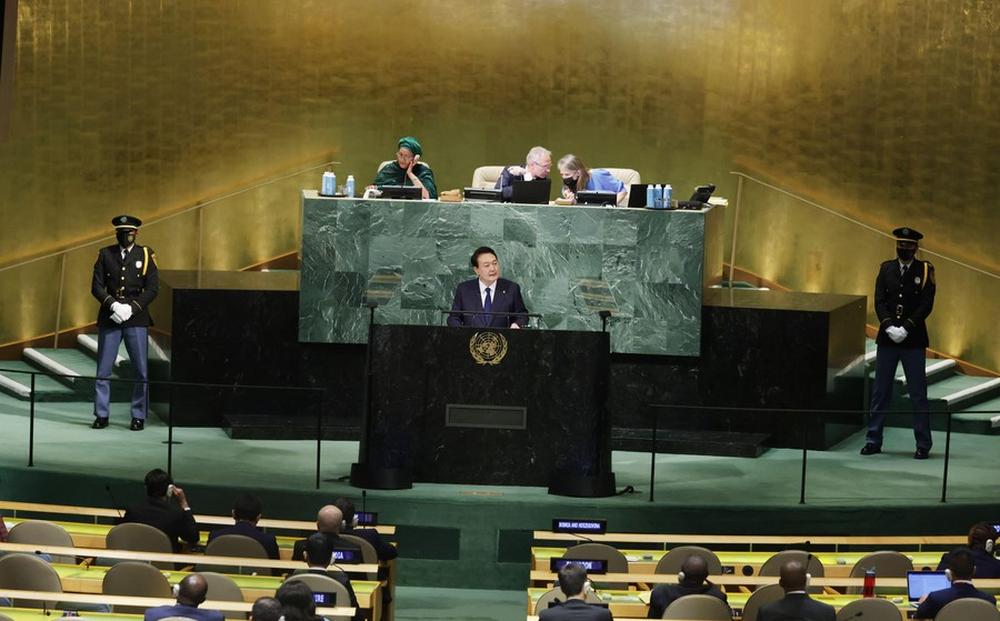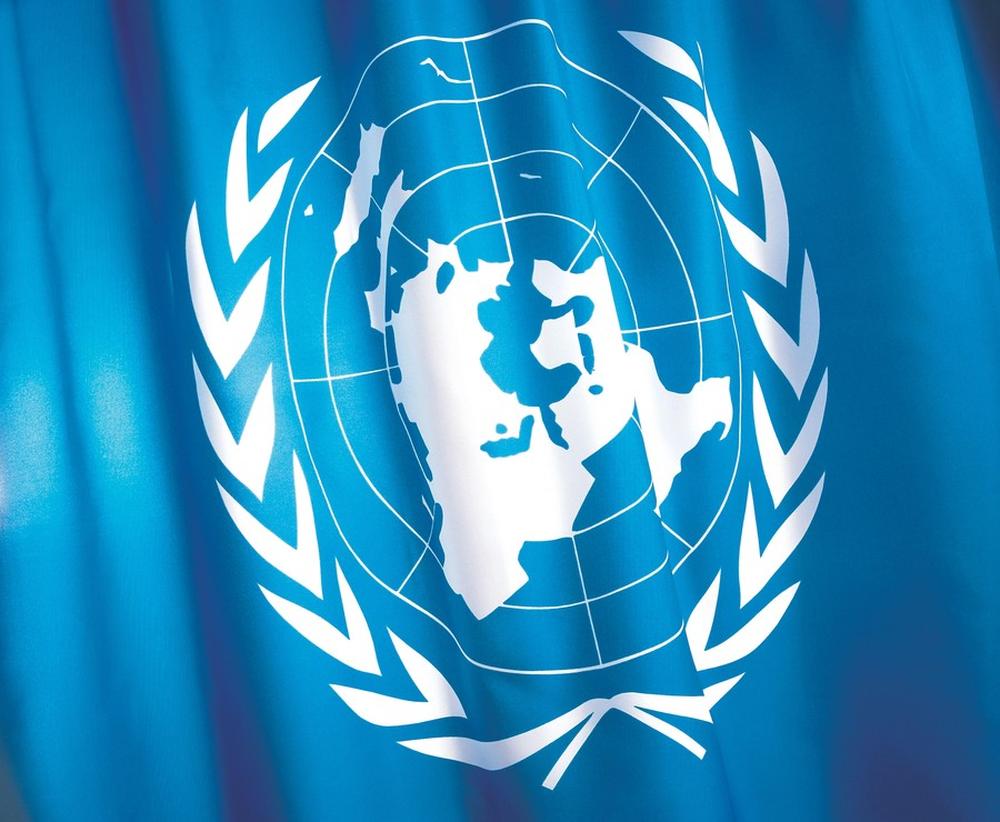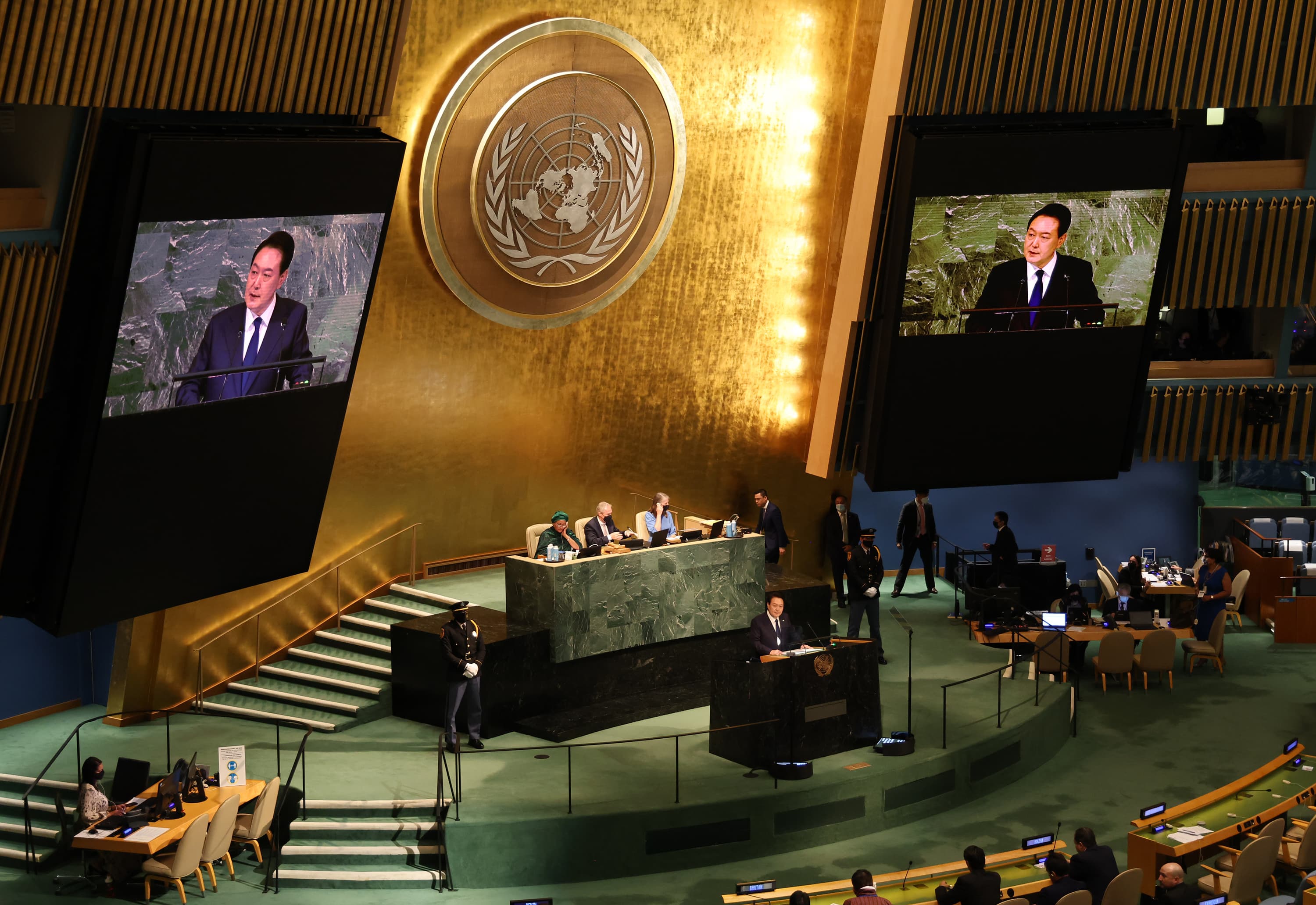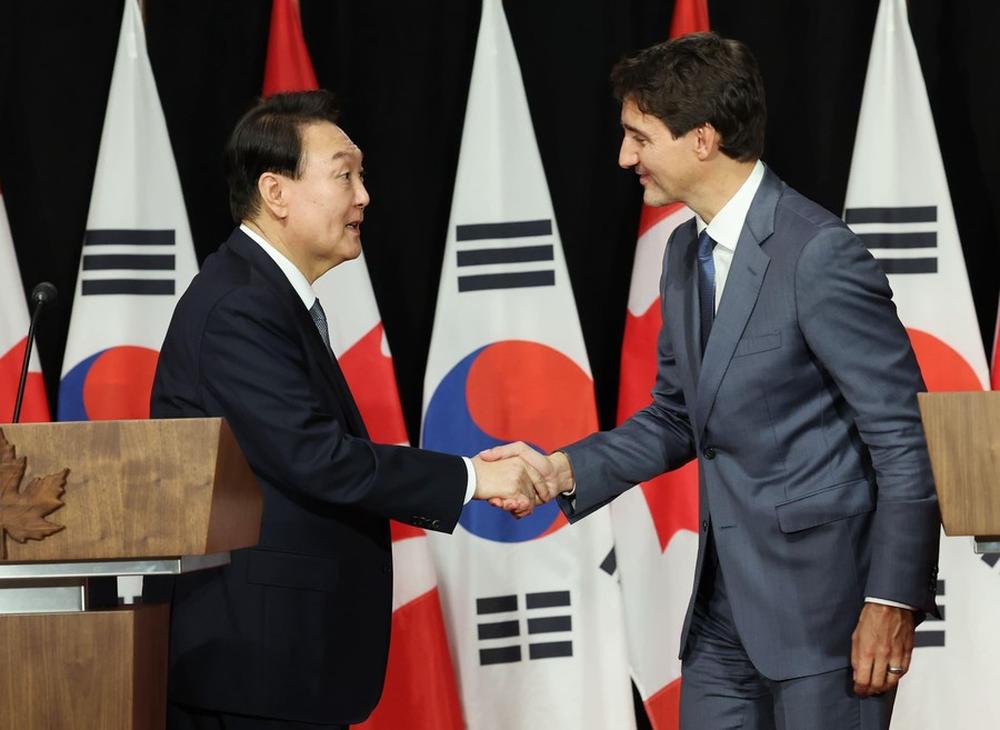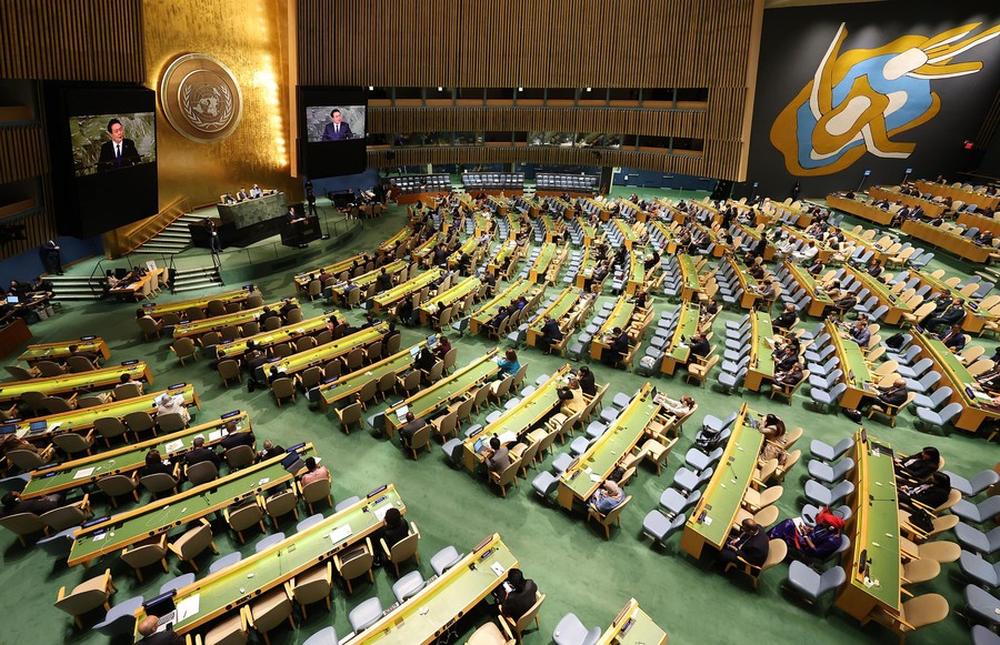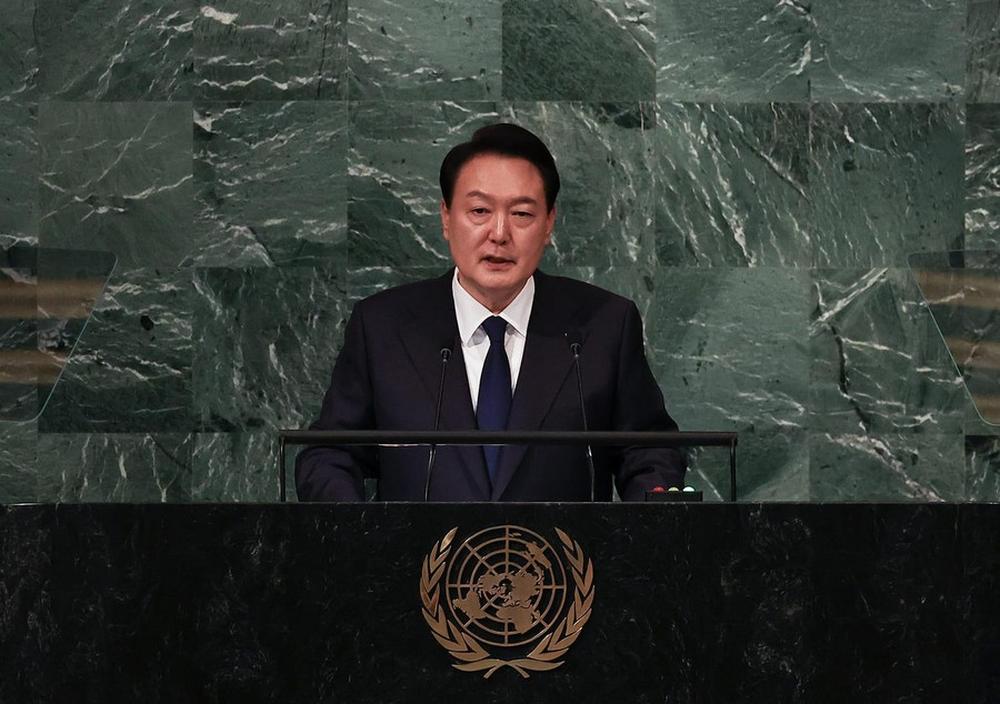- #Global Issues
- #South Korea
- #US Foreign Policy

► The fact that President Yoon used his UN General Assembly speech to discuss pressing challenges to freedom and peace facing world citizens and seek solutions without mentioning North Korean denuclearization or peace and prosperity on the Korean peninsula may be a sign of his willingness to fulfill South Korea's responsibilities as a "global pivotal state."
► With the "Audacious Initiative," the Yoon administration has maintained its position that "South Korea is pursuing the denuclearization of North Korea and improvement of inter-Korean relations."
► South Korea should take the possible normalization of North Korea’s relations with the U.S. and Japan as an opportunity to actively explore ways to realize denuclearization, peaceful coexistence, and the Audacious Initiative.
“Freedom and solidarity” are the keywords of President Yoon Suk Yeol’s keynote speech at the 77th UN General Assembly. The international order has entered a period of transition, shaped by the full-scale U.S.-China strategic competition, a prolonged war in Ukraine, the global spread of the COVID-19 pandemic, and the severe climate crisis. President Yoon stressed freedom and solidarity as key to weathering this period of transition.
He argued that the freedom and peace of world citizens are threatened by attempts to change the status quo by force, weapons of mass destruction such as nuclear weapons, and collective violations of human rights. He expressed his determination for the Republic of Korea to take a leading role in promoting international cooperation and solidarity to safeguard the international order rooted in the universal values and norms of freedom, human rights, and the rule of law.
In his speech at the UN General Assembly, President Yoon proposed ways for the Republic of Korea (ROK) to contribute to economic security to bridge the digital gap, participate in climate change response, and promote health security to make social progress in the international community and improve living standards. He emphasized freedom and solidarity as fundamental solutions to the global challenges facing humanity during this critical juncture of transition.
The fact that President Yoon used his UN General Assembly speech to discuss pressing challenges to freedom and peace facing world citizens and seek solutions without mentioning North Korean denuclearization or peace and prosperity on the Korean peninsula may be a sign of his willingness to fulfill South Korea's responsibilities as a "global pivotal state." While former ROK presidents focused their UN speeches on resolving the North Korea nuclear issue and the issue of peace on the Korean peninsula, President Yoon adopted a more global perspective, attempting to integrate Korean peninsula issues within the overarching framework of global issues based on the confidence that the ROK can play a leading role in addressing the challenges facing humanity.
Previous ROK administrations urged North Korea to denuclearize and imposed sanctions on its nuclear and missile tests through the UN, but these efforts failed to stop the advancement of North Korea's nuclear weapons. President Yoon proposed the "Audacious Initiative" in his inaugural address and at the National Liberation Day speech, but North Korea, nonetheless, enacted legislation to use nuclear force. The subsequent sense of hopelessness and disappointment may have made President Yoon avoid discussing Korean peninsula issues in his speech. President Yoon's emphasis on freedom and solidarity to defend the international order based on universal values and norms appears to be a declaration of "strategic clarity" amidst the U.S.-China strategic competition.
President Yoon's UN speech emphasizing freedom and solidarity may have hinted at a clue to his solution for the North Korea issue. Former ROK administrations had not emphasized freedom in addressing the North Korea issue. They sought to denuclearize North Korea and drive changes through inter-Korean economic cooperation and assistance based on a functionalist or neo-functionalist approach, such as the economic peace theory (Kim Dae-jung and Roh Moo-hyun administrations), the security economy theory (Lee Myung-bak and Park Geun-hye administrations), and the peace economy theory (Moon Jae-in administration).
With the "Audacious Initiative," the Yoon administration has maintained its position that "South Korea is pursuing the denuclearization of North Korea and improvement of inter-Korean relations." The Yoon administration also proposed a "security-economy tradeoff" where South Korea would provide economic infrastructure in exchange for North Korea taking steps toward denuclearization if Pyongyang shows a sincere willingness to denuclearize. Although President Yoon did not disclose specifics on corresponding political and military measures in his UN speech, he did state his position at a press conference on his 100th day in office that if North Korea engages in denuclearization talks, South Korea will provide diplomatic support for the normalization of North Korea-U.S. relations, announcing his will to take a comprehensive approach to address hostile relations between the U.S. and North Korea. However, North Korea perceived the Audacious Initiative merely as a replica of the Lee Myung-bak administration's "Vision 3000: Denuclearization and Openness" and rejected it outright.
The Yoon administration proposed a denuclearization initiative with the incentives of economic support, but due to North Korea’s negative response, the Yoon administration is more likely to do away with the "modernization theory" and to take the approach of "promotion of liberalism" when pursuing foreign and North Korea policies. This may be one possible reason why the North Korea issue was not mentioned in his UN General Assembly speech.
In his speech, President Yoon underscored freedom and solidarity, moving away from "strategic ambiguity" and stressing the importance of maintaining the U.S.-led international order. Commenting on North Korea along with Russia, China, and Iran, U.S. President Joe Biden said, "Let me also urge every nation to recommit to strengthening the nuclear non-proliferation regime through diplomacy." Regarding the China issue, he added, "We do not seek conflict. We do not seek a Cold War. We do not ask any nation to choose between the United States or any other partner." Although diplomatic rhetoric cannot always be taken at face value, this statement can be interpreted to mean that the U.S. will not require other countries to pursue "strategic clarity."
Given that Russian President Vladimir Putin poses an overt nuclear threat to Europe and that there is a strong possibility North Korea could conduct the seventh nuclear test, the U.S. is maintaining its position to prioritize nuclear non-proliferation through measures such as arms control and to hold firm in promoting a vision of a free, open, secure, and prosperous world. It appears that President Yoon has responded to the U.S. vision with a vision of "freedom and solidarity."
In contrast to the UN speeches by the ROK and U.S. presidents that emphasized freedom and non-proliferation, respectively, the Permanent Representative of the Democratic People’s Republic of Korea to the UN, Kim Song, criticized the U.S. and South Korea, stating, "global security is in its worst state since the Second World War" due to attempts to replace the international order with a "rules-based one led by only a few countries." He claimed that the security environment on the Korean peninsula "is heading into a much more dangerous phase" due to the "hostile policy against the DPRK" pursued by the United States and its allies and like-minded followers.
Although the South and the North did not specifically mention each other in their speeches at the UN General Assembly, the two sides showed a sharp difference in opinion regarding "attempts to change the status quo by force" and "a rules-based international order." As President Yoon's speech to the UN General Assembly has revealed the objective of the ROK administration's national strategy based on the concept of a global pivotal state, the remaining task of the Yoon administration is to refine its implementation strategy.
Through the introduction and development of an American-style liberal democratic system and market economy, South Korea has become a global pivotal state and one of the global leaders within the ranks of the world's top 10 economies. To fulfill its role as a global pivotal state, South Korea must come up with creative solutions to resolve the pressing North Korean nuclear issue and the long-range missile issue, both of which pose a threat to world peace.
North Korea, which has declared itself a nuclear weapons state and passed legislation on the use of nuclear force, harshly rejected the Yoon administration's "Audacious Initiative," calling it "absurd." North Korea immediately rebuffed the Audacious Initiative through a statement made by Kim Yo Jong on August 19, 2022, where she called it "the height of absurdity as it is an impracticable [plan] to create mulberry fields in the dark blue ocean."
Considering that North Korea is insisting on "nuclear coexistence" while the South Korean government is pursuing "nuclear-free coexistence," it will not be easy to reach an agreement. Dangling economic incentives in exchange for North Korea’s denuclearization is unlikely to work as evidenced by past experiences. In the end, South Korea will need to establish a denuclearization-peace process that includes a security guarantee, the most fundamental issue to North Korea, involving the ROK-U.S. joint military exercises, the transition from an armistice agreement to a peace agreement, and the normalization of North Korea-U.S. relations. Based on this process, South Korea needs to convince the North to agree to this exchange process.
The Yoon administration has expressed its willingness to provide diplomatic support for the normalization of North Korea-U.S. relations, and Japan has also recently revealed its intention to normalize diplomatic relations with North Korea. Therefore, South Korea should take the possible normalization of North Korea’s relations with the U.S. and Japan as an opportunity to actively explore ways to realize denuclearization, peaceful coexistence, and the Audacious Initiative.
